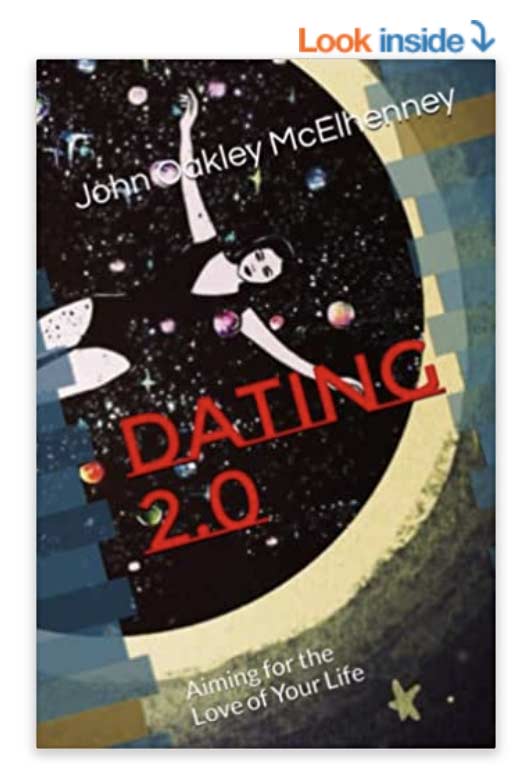In the three years that I’ve been coaching men and women in relationships, I have learned so much about how we are the same and how we are different. We have the same issues and desires, but men and women appear to be wired differently. Let’s explore a few ideas that continue to recur in my sessions with people of the opposite sex.
What we all want:
- To be heard and seen on a deeper level (listen and be listened to)
- To be held by a romantic partner
- To be respected and appreciated
- To be shown that we are loved by the other person (know your Love Languages, folks)
- To be excited by our interactions and the potential future actions
- Inspirational chemistry (sexual chemistry, emotional chemistry, spiritual chemistry)
As we move through life, searching for a healthy and loving relationship, most of us have a list (even if it’s unwritten) in our minds about what we want, need, and must-have. We may also have our red flags, that tell us to get the hell out of there. And most of us are not very well versed in how to get these things in a romantic relationship. Often, we will attempt to get our “relationship” needs met with people that fail spectacularly in one or more of the categories on our list, but have several of the good qualities that set our hearts on fire. This is a dangerous mistake. Let me explain.
A Healthy Long-Term Relationship
The ideal healthy long-term relationship is a bit of a myth. Even in the best of relationships, there are going to be compromises, challenges, and complete misses. The journey of building a healthy relationship comes in as BOTH partners tune-in to the wants and needs of the other person. Each time there is a miss (when some important connection request is not received or responded to) a couple has an opportunity to turn towards each other and work it out, or turn away from one another in a more “fk it” approach.
There are several skills that are important for both partners to learn if the want to navigate and negotiate a healthy relationship.
- Listening
- Empathizing
- Not Giving Advice
- Holding Strong
- Giving Assurance and Comfort
We’re going to break each of these down a bit, so you understand how these skills work together.
Listening
In our sped-up modern lives, we often don’t give enough time and enthusiastic attention to our partners. We are distracted. We’ve got kids and chores, and our work lives bleed over into our private lives. And, for the most part, we’re leading sped-up, hectic lives, rushing from one thing to another. This chaos is actually a choice. We might be prioritizing our crisis/rush mode over other things (like our partners or our own emotional struggles) so we don’t have to slow down and feel what’s going on.
It’s important to stop and listen to your partner when you are checking-in with each other. It’s important to mute your phone, if you like the text alarm sounds. It’s important to feel into what your partner is saying without formulating a response or defense, if the topic is the relationship. It’s critically important, to slow down and take the time to listen to your partner. Hear their pain, their joy, their frustration, their complaints. This is the only way to get more information into the “couple’s system.” You must listen, without distraction, and without formulating your defense, response, or advice. Just listen.
Empathizing
If you heard your partner’s struggle, it’s important that you give them an empathetic response. Here’s what this might look like.
Her: “My boss completely humiliated me in the staff meeting today. After everything I’ve done for this company, for him to belittle my PowerPoint skills was uncalled for and hurtful.”
Him: “Oh, I can understand how that must hurt. You do put in a lot of time and effort into your work. I can hear you’re still angry and hurt. How can I best support you?”
It’s important that you reflect back their pain. That you don’t try and FIX IT. And that you offer your support in any form they would like it. Then you go back to listening and try and hear what they want.
Not Giving Advice
The next step in supporting your partner is NOT TO GIVE UNSOLICITED ADVICE. EVER! Just don’t do it. When someone wants your advice they will ask for it. When you offer unwanted advice you are heading into dangerous waters. It appears to many people, that you are saying you know better. “Here’s what I would do…” has no place in a conversation unless the previous question, “What would you do in this instance?” is asked. Even then, giving advice is a slippery slope in romantic relationships. Often the topics are too emotionally packed to be handled “in the moment” with some ideas you have about how to fix the situation.
When you feel yourself slipping into advice-giving mode (Well, I would tell your boss tomorrow…) you’ve got to learn to stop yourself. You can ask, “I have some ideas, would you like to hear them?” But even that question is a bit loaded. If the emotional upset is about the relationship, that may really push some buttons. The better strategy is to wait. Give your partner space to feel their feelings. Just wait. Allow them to come to their own conclusions, their own request for what they need. Often, after a hard release, I just want to be held. You don’t need to tell me “it’s going to be okay,” you just need to hear me and offer a hug. Hold me. I’ll tell you what I need when I figure it out.
Holding Strong
Here’s one of the hardest parts for most of us. We really do want to jump in and make things better. If the “issue” has to do with our behavior, or some hurt that we seemed to have caused, it is a natural instinct to rush in and rescue the other person. I go into OMG Mode: “What did I do? How can I fix it? Do I need to apologize?” And ultimately, my emotional response (which is almost always WRONG) is: “This is my fault.”
Hold.
When the other person is going through a tough time, and giving you the business about why they are upset, it is best not to jump to the conclusion that it is your fault. It is best not to rush into the burning building of their emotional fire and offer YOUR solution. Here’s the truth: You do not have all the information. It may not be about you at all. You may have triggered the upset, but the core pain and anguish your partner is expressing may have very little to do with you or your behavior. If you rush in to fall on your sword, you might misdirect the issue, and you might both miss the underlying issue altogether.
Stop. Use Brené Brown’s BRAVING. Just hold steady. Offer your strong shoulder and support. And DO NOT TAKE ON THEIR PAIN. Hold them in their pain (if they are open to being held) and allow them to feel your supportive AND SILENT presence.
Giving Assurance and Comfort
As the storms begin to subside in a difficult conversation, it is important to offer your support and comfort. It’s best to ask, “Can I give you a hug? Do you know what you would like from me now? How can I best support you in this moment?”
You must give your partner the assurance that you are not running away. And you must also allow them to hold their own pain. By “staying in your own lane” you are giving them several strong messages.
- I am here
- I am not afraid of your struggles and pain
- I will give you the time and space to heal
- I will stand beside you in the battle and provide whatever strength and support you need
- I am on your team
That’s all we want, really. To be heard. To be held. And to be given the support and assurance that our partner is present and accounted for. By staying within your own emotional experience (even if the issue is about you) you are allowing your partner to feel the full range of emotions. You are allowing them to work through them as you listen with an open heart. And then, you are giving them the power to make requests about what they need.
This is a beautiful dance if you can manage it. In the Tango, for example, there is always a LEAD and a FOLLOW. In emotionally charged discussions, will always be a lead and a follow as well. It is an essential component of building a successful relationship to learn how to listen, stay in your lane, and offer your support. As we get better at this process, we are more able to navigate the emotionally-charged process of falling in love and staying in love.
Always Love,
John McElhenney – life coach austin texas
Facebook | Instagram | Pinterest | @wholeparent
Get the complete single dad story with John’s new book: Single Dad Seeks (available in all formats)
And here are a few more posts about deep relationships:
- Single Parents Finding Each Other: 4 Relationship Requirements
- The Spiritual Quest for Love
- From Dating to Love: Either Show Up 100% of the Time, Or You’re Gone
- Relationship Building Skills & Wisdom: BRAVING & The Four Agreements





